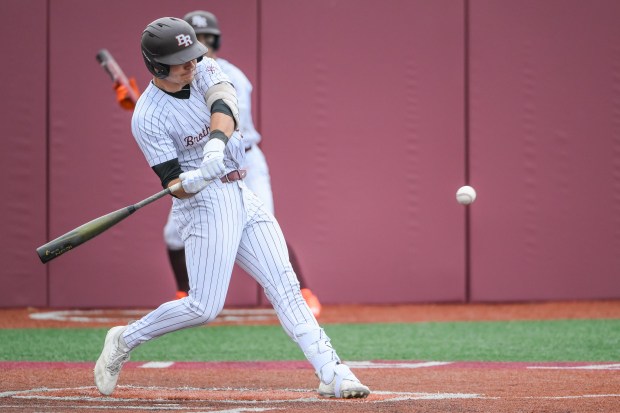Legislation to eliminate the subminimum wage for tipped workers statewide appears unlikely to pass before lawmakers adjourn this week, but the coalition pushing the measure vowed Tuesday to continue efforts to bring the rest of Illinois in line with the city of Chicago.
“We have more work to do. We’re going to do that over the summer. We’re going to do it in good faith,” state Sen. Lakesia Collins, a Chicago Democrat, said, standing alongside members of the coalition One Fair Wage at a Springfield news conference.
With the spring legislative session scheduled to adjourn Friday, the bill has not been called to a vote in either chamber, underscoring the difficulty of making the policy statewide after Chicago eliminated the subminimum wage last year.
State Rep. Elizabeth “Lisa” Hernandez noted that the measure “made more progress than ever” and did receive a favorable vote in the House Labor and Commerce Committee.
Richard Rodriguez, national policy director for One Fair Wage, said the group hopes that the Democratic National Convention in Chicago will provide a burst of momentum for the legislation heading into the fall veto session, noting that President Joe Biden has called for an end to the tipped minimum wage nationally.
The elimination of the subminimum wage in Chicago last year was a win for Mayor Brandon Johnson and progressive members of City Council.
But the Illinois Restaurant Association has continued to fight a statewide measure and some Democrats, including Chicago Reps. Angelica Guerrero-Cuellar and Curtis Tarver, have sided with the association, citing potential costs to small businesses.
The association’s president and CEO, Sam Toia, on Tuesday maintained that the legislation “is a solution to a problem that does not exist.”
According to One Fair Wage, more than 200,000 Illinois service industry workers make a base wage that’s less than the state’s minimum wage of $14 an hour for workers 18 and over. Tipped workers can earn a base rate that’s 60% of that minimum, or $8.40 an hour.
Opponents including Toia have argued the focus should be on enforcing existing wage laws.
Some workers who appeared at the news conference in support of the legislation said the current laws aren’t protecting them from being underpaid.
“It’s not for me to run around and try to enforce the law about $5 and $2 and $3, it’s for the law to start working for workers,” organizer and former tipped worker Nataki Rhodes said at the Springfield news conference.
Hernandez, who represents Cicero, and other leaders from the Chicago suburbs have also said they’re worried the retention of tipped wages outside Chicago could draw workers away from suburban businesses. The Cook County Board of Commissioners last week voted 15-1 in favor of a resolution calling on state lawmakers to pass the legislation.




